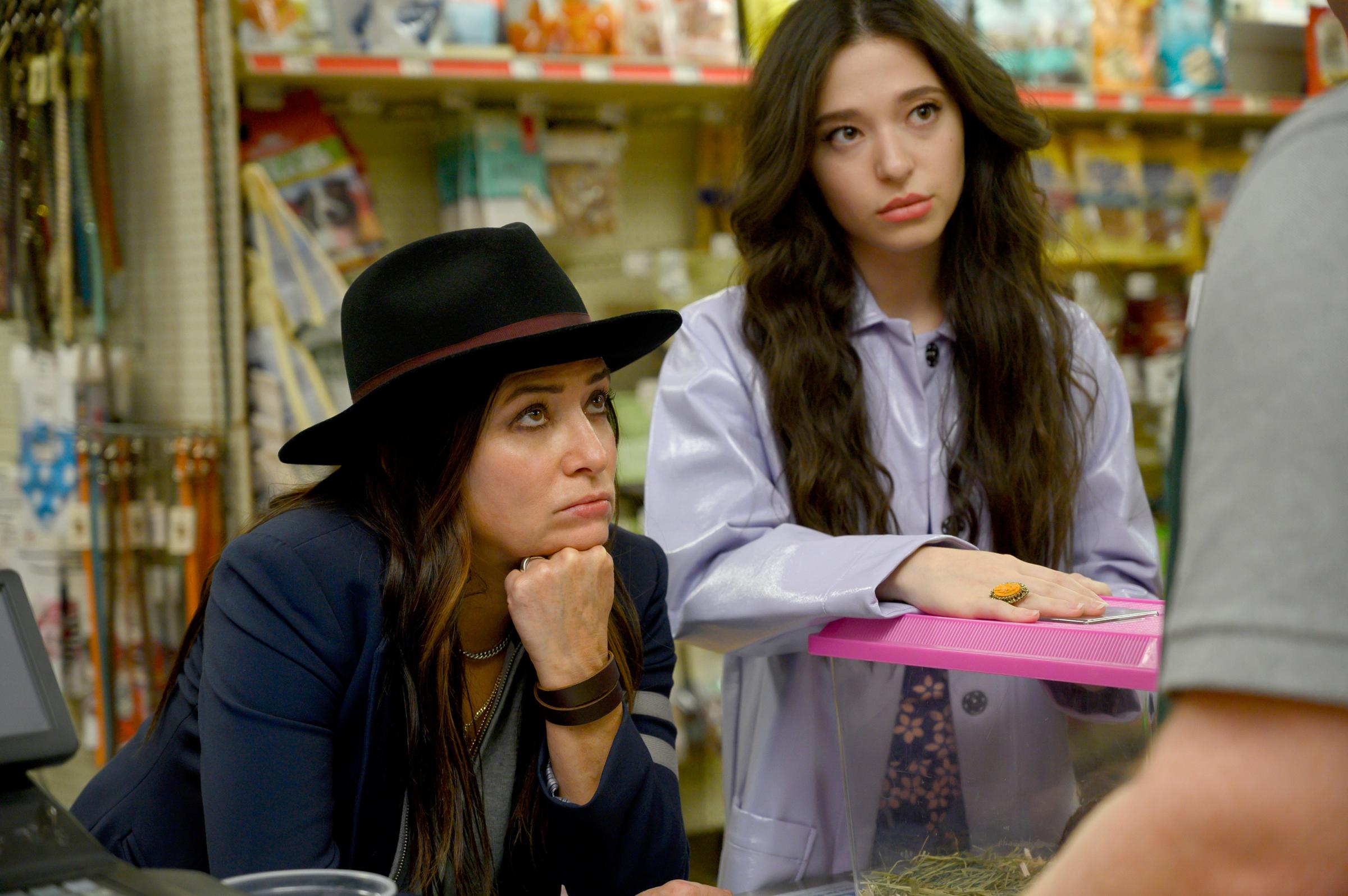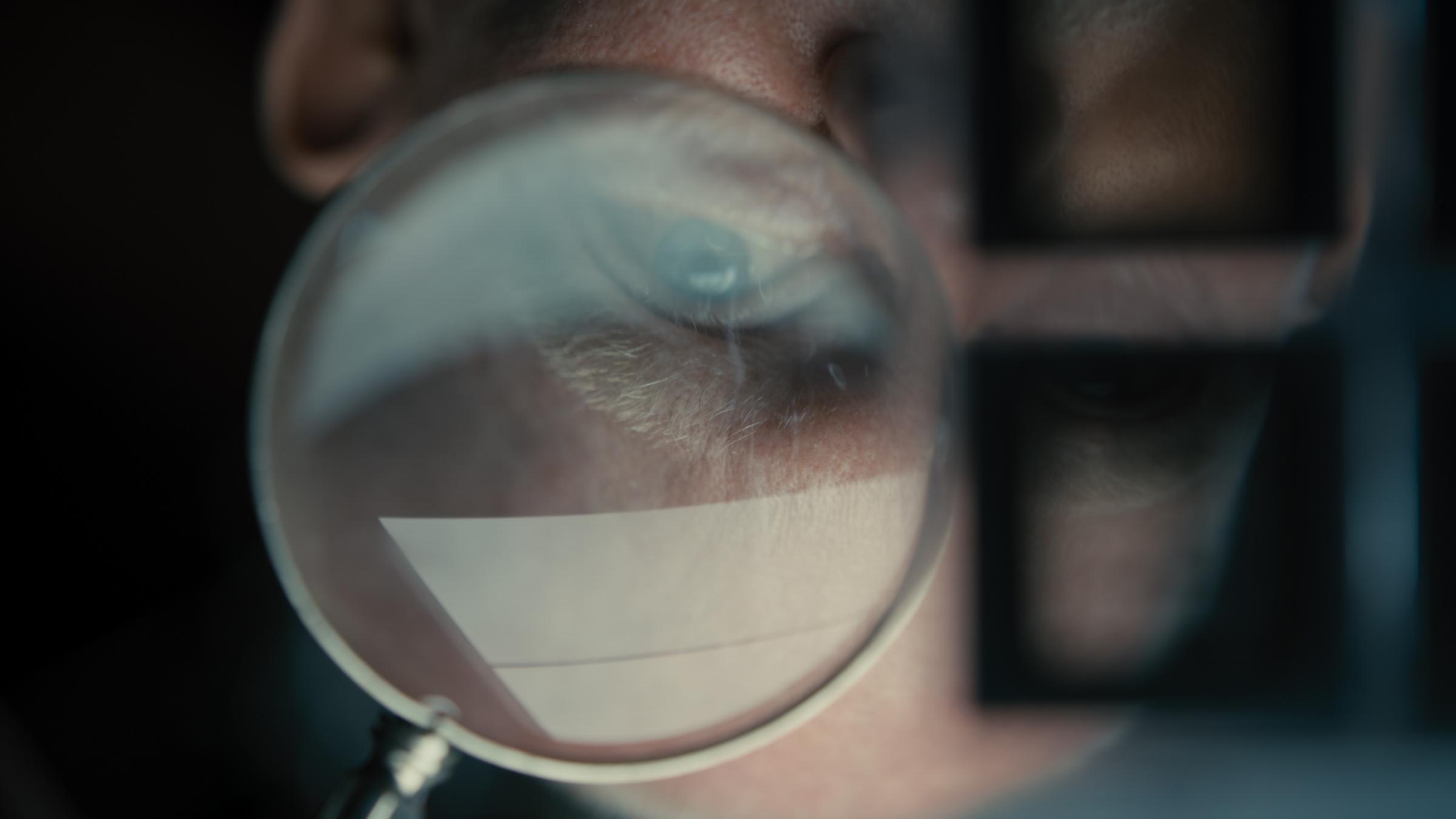
If you signed up for Disney+ to watch The Mandalorian and have, since then, streamed every Disney, Marvel and Star Wars movie worth a second look, you may be asking yourself: What has this platform done for me lately? While tweens can point to Gina Rodriguez’s charming Diary of a Future President and Star Wars die-hards might be enjoying new episodes of the animated Clone Wars (both 2020 debuts), the next major Disney+ series with obvious all-ages appeal—Marvel’s The Falcon and the Winter Soldier and WandaVision—aren’t due out until August and December, respectively. So, four months after the service’s launch, it’s fair to wonder if Disney really poses a threat to its competitors in the battle for subscribers over 13.
The entertainment monolith’s streaming wars strategy is kind of baffling until you recall that it has diverted all of its TV-MA and R-rated titles to its other streaming platform, Hulu. (Disney also recently moved an upcoming series based on the hit Fox 2000 movie Love, Simon—an almost aggressively wholesome PG-13 dramedy about a gay teen who struggles to come out—from Disney+ to Hulu, raising the question of what exactly “family-friendly” means to the company.) It’s on this front that Disney will fight Netflix and Amazon, as well as Warner Media’s HBO Max and NBCUniversal’s Peacock, each set to launch this spring. Judging by Hulu’s ambitious output over the past few months, the service has been quietly gearing up for that confrontation. With the launch of FX on Hulu, a streaming hub for both current and older titles from the cable network, those efforts seem likely to generate a whole lot more attention.
For now, most FX on Hulu shows will premiere on FX or its sister network FXX, with episodes coming to Hulu the day after they air. The first series to follow that model will be Breeders, a downbeat, extremely British family comedy starring Martin Freeman as a dad with anger issues and Daisy Haggard (of 2019’s excellent Back to Life) as his overtired wife, which debuts March 2 on FX. Dave—a cheerfully sophomoric, semi-autobiographical sitcom from the self-deprecating comedy rapper Lil Dicky that is tailored to FXX’s young, male audience—will follow two days later. The season 4 premiere of Pamela Adlon’s consistently stunning single-parenting dramedy Better Things airs on FX the 5th. The next day brings The Most Dangerous Animal of All, a four-part docuseries adapted from a best-selling book by a man who believes his father was the Zodiac killer; it rips much of its slow, character-driven style from Errol Morris and will undoubtedly hook true-crime fans.
That’s four solid series in as many days, but the biggest draw of FX on Hulu’s first week is sure to be the streaming-exclusive tech thriller Devs. Created, written and directed by filmmaker Alex Garland (Annihilation, Ex Machina), the beautifully shot miniseries takes place amid the titular top-secret division of a quantum-computing giant called Amaya, where both a murder mystery and an inquiry into free will in the age of predictive algorithms unfold. Strictly from a branding perspective, Devs is an ideal flagship streaming title for a prestige cable brand: it’s fast-paced, cerebral, suspenseful enough to binge (though episodes will appear weekly after a two-part premiere) and looks as stylish and expensive as Hollywood movies.
It doesn’t seem to be a coincidence that FX is routing such a high-profile project straight to streaming. The network’s second Hulu-only series, April’s lavish 1970s period drama Mrs. America, has Cate Blanchett, as antifeminist lightning rod Phyllis Schlafly, leading a full-on dream cast that includes Rose Byrne, Uzo Aduba, John Slattery, Elizabeth Banks and Tracy Ullman. Next in the pipeline are A Teacher, adapted from a provocative film about a female teacher in a sexual relationship with a male student, and Jeff Bridges vehicle The Old Man. This focus on streaming seems to be the answer to questions longtime FX boss John Landgraf—a sort of small-screen oracle who’s been called the “mayor of television”—has said he and his team considered after the Disney acquisition: “If we had more resources, how would we want to use them? What would we like to do? What would we propose to do in the future that we’re not doing today?”

Of all the properties Disney picked up when it acquired 21st Century Fox last year, FX Networks was easily the most distinctive TV brand. (News Corp. retained control of Fox’s broadcast, news and sports channels, in accordance with antitrust laws.) Launched in 1994 as a youthful live-TV experiment from Fox, FX was reimagined a few years later as a racier version of its broadcast counterpart. But it was only after the turn of the millennium—as HBO was going all-in on original series with The Sopranos, The Wire, Sex and the City, Six Feet Under and more—that FX made its name. The network’s early originals included Michael Chiklis’ dark cop drama The Shield, Ryan Murphy’s breakout doctor serial Nip/Tuck and boundary-pushing comedy It’s Always Sunny in Philadelphia (which is still airing, now on FXX). Along with a target audience of Gen X and millennial men, these shows shared a combination of intelligence, irreverence and grit that was still hard to find on basic cable.
FX remained aggressively macho for the first several years of Landgraf’s tenure, which began in 2004 and yielded consistent, if not classic, series like fantasy-football sitcom The League, biker saga Sons of Anarchy and animated spy spoof Archer. Yet as the ’10s progressed, audiences overdosed on male antiheroes and masculinity became an increasingly fraught concept for millennial viewers, the network expanded its point of view. Murphy’s camp sensibility infused the popular American Horror Story and American Crime Story anthologies, culminating in the groundbreaking depictions of trans women and gay men of color in Pose. Louis C.K.’s Louie confronted the dark side of the male psyche, a few years before #MeToo exposed its creator’s own hypocrisy (at least it begat Better Things). Debuting in 2013, The Americans gave FX a profound Cold War family-drama-as-spy-thriller that ranked among many critics’ top 10 shows of the decade. Fargo does justice to the Coen Brothers classic it was based on, and Atlanta affords Donald Glover a genre-defying outlet for pure creativity.
The network still isn’t infallible, as short-lived series like Sons of Anarchy creator Kurt Sutter’s nihilistically gory medieval epic The Bastard Executioner and Sex & Drugs & Rock & Roll—two seasons of “OK boomer” antics starring Denis Leary—have proven. But its success rate is high, especially relative to the artistic risks it takes. Landgraf has attributed that outcome to “a very bespoke, sort of extremely intensely intimate interpersonal relationship we have during production and development and marketing”—a process that he notes isn’t “infinitely scalable.”
By all appearances, Hulu stands to benefit from FX’s wisdom just as much as FX could use the influx of Disney cash. Though it conquered the Emmys with The Handmaid’s Tale, Hulu has had surprisingly few big hits for a platform that has been making originals for almost a decade. The Veronica Mars revival, true-crime drama The Act and auteur comedies Pen15 and Ramy made 2019 its strongest year to date. (As tends to be the case with streamers, viewership stats are few and far between.) From a creative standpoint, the bigger problem is that Hulu greenlights a lot of projects that sound great on paper—Aidy Bryant in Lindy West’s semi-autobiographical Shrill, Kat Dennings in surrealist breakup comedy Dollface, Mindy Kaling reboots Four Weddings and a Funeral—without ensuring the execution lives up to the pitch. Even The Handmaid’s Tale, so poignant and thought-provoking in its first season, has since been characterized by melodrama, plot holes and gratuitous cruelty.
Along with quality control, it seems likely that FX—which will reportedly contribute one-third of Hulu’s original programming in 2020 and 2021 and whose programming still skews somewhat masculine—will balance out Hulu’s largely female focus. The service’s main slate for this year includes March’s highly anticipated Little Fires Everywhere, an adaptation of Celeste Ng’s novel that stars executive producers Reese Witherspoon and Kerry Washington; four-part documentary Hillary, which made headlines out of Sundance for revealing the extent of Clinton’s lingering animosity toward Bernie Sanders; and Elle Fanning as a young Catherine the Great in The Great; along with Zoë Kravitz’s much-debated High Fidelity, which came out in February.
If Mrs. America and Better Things are poised to capitalize on that existing audience, then Devs, Dave and The Most Dangerous Animal of All—FX’s first experiment with one of streaming’s most popular formats, the true-crime docuseries—should all help to expand it. And broadening Hulu’s viewership might, in turn, make the $13 Disney+/Hulu/ESPN+ bundle Disney is offering start to look like an attractive alternative to Netflix, especially for households with kids or sports fans.

For viewers, FX on Hulu appears to be very good news: lots of premium programming at no additional cost and a silver lining to the giant storm cloud that is Disney invading every corner of the entertainment industry. As former Amazon Studios head of strategy Matthew Ball explained in an interview with the Hollywood Reporter last fall, “The only group that doesn’t benefit from John Landgraf and the FX team getting more budget and more shows via partnership with Hulu is pay TV providers.”
But this synergy doesn’t come without risk. After years of rapid expansion, Disney has recently entered a transitional period, as its imperial Bob Iger era gives way to whatever Bob Chapek has in store. And Hulu has just had a leadership shakeup of its own, with Randy Freer exiting as its CEO and Kelly Campbell succeeding him as president. New leadership can bring major changes in strategy—as HBO employees so memorably learned in 2018, when John Stankey became Warner Media’s chief executive and demanded that a network known for quality get serious about quantity. Since then, HBO upped its output of original content from around 100 to 150 hours per year, with an additional 10% increase projected for 2020. Though that growth hasn’t necessarily hurt the channel’s success rate, it has seemed to exceed many viewers’ bandwidth, as post-Game of Thrones genre hits like Watchmen and The Outsider outshine quieter (Mrs. Fletcher, My Brilliant Friend) and weirder (The New Pope) gems.
FX doesn’t seem to be facing the same pressure to churn out content, at least for now. “Do we want to try to be as big as HBO?” Landgraf asked last year. “We’ve looked at that really, really carefully. So far, I don’t think we’re even going to ask to match that footprint in terms of scale. I think we’d like to match it in the profusion of genres they program in.” And the initial FX on Hulu lineup, with its expanded range of styles, subjects, voices and budgets, reflects that approach.
Becoming Disney’s prestige-TV brand—one aimed at adding value for subscribers rather than one that lives and dies on how many eyeballs each new project attracts—might well shield FX from the brunt of its new parent company’s typical strategy of squeezing blockbuster after blockbuster out of established intellectual property. For those who appreciate the network, as I do, not just for the care it evidently takes with each release, but also for its boldness in choosing to tell smart, occasionally subversive stories, that would be the ideal outcome.
The rub, even in this best-case scenario, is that we’ll still have to trust one of an increasingly small number of entertainment megacorps to save a place for art amid so much billion-dollar commerce. Success by cable standards doesn’t necessarily look like success in the streaming wars, especially when the latter requires a bigger investment. Quality may already be something of a zero-sum game for Disney. In a move that echoes the trend of viewers buying movie tickets for special-effects spectacles while turning to TV for substantive storytelling, Iger announced in November that the Oscar-winning Searchlight division Disney inherited from Fox would begin making content for Hulu. It’s unclear whether and to what extent this will impact the capacity of the studio behind The Favourite, The Shape of Water and several Wes Anderson films to make movies.
On the strength of its debut slate, FX on Hulu seems well positioned to become that service’s answer to HBO. But at a company like Disney—even more so, maybe, than at Fox—there’s always a bigger picture. And who knows what that will look like when it finally comes into focus?
More Must-Reads from TIME
- Cybersecurity Experts Are Sounding the Alarm on DOGE
- Meet the 2025 Women of the Year
- The Harsh Truth About Disability Inclusion
- Why Do More Young Adults Have Cancer?
- Colman Domingo Leads With Radical Love
- How to Get Better at Doing Things Alone
- Michelle Zauner Stares Down the Darkness
Contact us at letters@time.com